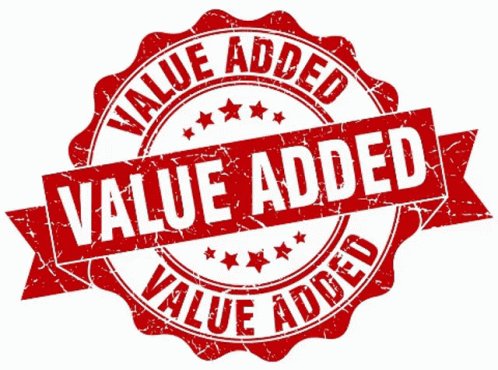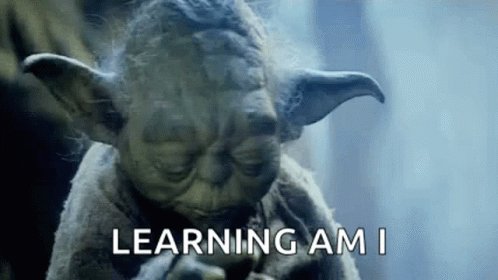Hey all 👋. My name is Nick Larson and I'm a product marketing manager at @bananatag (which is merging with @StaffbaseHQ). I'm going to be taking over the account this week to share a bit about my own experience as a product marketer
I’ll focus on a different thing each day this week: 1) how I see product marketing, 2) how to become a product marketer, 3) the core competencies I think are important for product marketers, 4) how to gain influence in your org, and 5) a reading list.
Let's start with the basics. Everyone defines product marketing a little differently, so here's how I think about it. My favorite one line description is from @tgrominsky: "Product marketing is the linchpin to sustainable business growth." (medium.com/product-market…)
When positioned correctly, product marketing acts as the connective tissue between marketing, sales, customer success, and product pic.twitter.com/xWpnkHvnKI
As a product marketer, you help your organization find product-market-fit. You also empower customer facing teams to market, sell, and support your product in the best way possible pic.twitter.com/G7jBcXd6J3
Typically, product marketing sits under either marketing or product in the org chart. While either may seem to make sense for different reasons, I actually believe it should live entirely on its own. Here’s why 💡
If your product marketing team reports to marketing, you’re going to be overly influenced by the marketing team’s priorities. Your OKRs will roll up to the marketing team’s OKRs
The same goes for product marketers who report to product or any other department. When one set of stakeholders has such an unbalanced amount of influence, you’re not going to be able to truly be that neutral connective tissue
Which brings me to another big take away from @tgrominsky. At Unbounce, she moved product marketing into its own strategic growth department. As soon as @bananatag merged with @StaffbaseHQ, I began advocating that we do the same.
A global product marketing team, focused on ensuring the sustainable growth of the business, reporting to a chief strategy officer. And I'm very proud to say that’s gone from being the dream to how we are structured today pic.twitter.com/DirDM3EEqM
A lot of people ask what the difference is between a product manager and a product marketing manager.
The simple answer is that a product manager should be focused on the user, while a product marketing manager should be focused on the buyer 💸
As a product marketer, you need to understand your buyer better than anyone else in your organization
How much product marketing and product management interact is going to partially depend on how much the buyer and user interact. In B2C, they’re probably the same person. In B2B SaaS they might not be, but it obviously depends on your product
This is also why I often tell startups they should hire a product marketer as soon as possible.
Yes, product managers are key to helping development teams build great products. But product marketers are key to ensuring those products are going to find market fit
Product managers also think in terms of minimum viable products (MVPs): what version of the product will be enough to entice early users to try it out and provide feedback for future development
Product marketers (should) think in terms of minimum valuable products (MViP?). The difference is subtle, but important: what’s the minimum we need to provide value to our target market pic.twitter.com/nWHwjiyZw3
There have been countless minimum viable products that were interesting enough for power users to give them a try but provided no real value to the market
While initial usage might be encouraging, it can also quickly send an organization down the wrong path. Which is why you need a product marketer to help you ensure you're truly providing value to your market with everything you do
Also, if anyone comes up with a better acronym for minimum valuable product than MViP, PLEASE let me know 😅
To sum it up: product marketing is incredibly powerful when positioned correctly within an organization. And you really can’t hire a product marketer too early
Tomorrow, I’ll talk about becoming a product marketer and how I accidentally found myself in product marketing at a 6 person startup
Fun fact: I never planned on becoming a product marketer. In fact, I made it all the way through business school without knowing exactly what a product marketer was🤷🏻♂️
So today I’m going to talk about that journey and how anyone can become a product marketer
Quick background: I started my career as a graphic designer, but quickly found I was interested in moving beyond tactical work into something more strategic. So I went back to school and got a degree in professional communication from @RoyalRoads
While I was studying communication I realized that while helping businesses communicate was great, I wanted to build the businesses themselves. So, I doubled down on my education and did a masters degree in management from @UBCSauderSchool
I got lucky! It turns out an MBA or other general business degree is the perfect foundation to be a product marketer. You’re going to need to understand virtually every area of your company at a high level, and you’re also going to need a strong business acumen pic.twitter.com/qmKsiamPgQ
I know business schools are taking a lot of heat lately, and while they might not directly prepare you for a lot of jobs, they can provide you with a really strong starting point for a career in many things. Especially product marketing 💯
My first job after business school was as employee number 6 at a startup. The existing team was product focused so they needed someone to come in and focus on marketing and sales
An environment like that is an INSANELY good learning experience. I created the brand, built the website, went to tradeshows, and developed a sales pipeline. I highly recommend joining a startup early in your career to give you the flexibility to discover what you’re great at
I quickly gravitated toward product marketing. A couple months in, I helped launch our first product, basically a big commercial UAV, at a trade show in Las Vegas. I was on cloud nine pic.twitter.com/94R56SlQly
But we didn’t find product market fit, and we needed to pivot. The startup way. We learned a ton from meeting with prospects in Vegas and we used that to inform future product development as we pivoted to selling our high precision positioning system separately from the UAV
All of a sudden I was a product marketer, even though that wasn’t my title. I was still the only person in both marketing and sales, so I also did a lot of other things, but my focus was on the go-to-market process and aiding product development 🚀
🚨 Important lesson here: if you look around your organization and don’t see a product marketer, you might already be one 🚨
After a few years of wearing a few too many hats, the startup I was with wasn’t growing fast enough to allow me to be a product marketer full time. I ended up leaving and joining @bananatag, as product marketer #2
@pmmunderhood @NatashaKatson Hey Nick, thank you for sharing your experience! I have recently started my first ever PMM role do you have ant tips/insights to support with the transition ( I have a generalist marketing background)
Hey congrats @jennifer__pyne! I'll talk more about this during the week but start with identifying your key stakeholders and building relationships with them. Sales, cs, product, execs, etc... Find out what their biggest challenges are and make a list twitter.com/jennifer__pyne…
Everything you do as a PMM is going to depend on these relationships
And once you have that list of challenges, identify the ones that you can help with. Then start small. Look for the quick wins that will help you show immediate value and accelerate those relationships
Also join the @PMMalliance slack community if you haven't already! It's a great place to get your questions answered. Even better if you can swing a PMA membership- they've got a ton of great templates and content you can reuse instantly in your org
Also check out this book @jennifer__pyne, I reread it every time I start a new role amazon.ca/First-Days-Upd…
@pmmunderhood @jennifer__pyne It's challenging to build those relationships in the remote world. Manageable but challenging. Things like random coffee or occasional company-wide events might help. Do you have any more tips?
Yes it is. You can no longer build them in the office kitchen or by going for drinks after work. However you can still make time to connect with coworkers- we may all be meeting fatigued, but booking time to catchup and asking about your coworkers lives is still highly underrated twitter.com/NatashaKatson/…
If you’re not already a product marketer, how can you become one? 🧵
If you read my last thread you’ll know I had the advantage of getting a few years of product marketing experience in a startup before that was formally my title. The startup path is a great one and I highly recommend it
There's so many essential activities for the first marketing employee at a startup that overlap with product marketing
I also see a lot of people move from more general marketing or product roles into product marketing. I think this is a great career strategy: if the role you want is hard to enter directly, make a list of the adjacent roles that interact with your target role
You’ll likely find one that’s easier to obtain or you’re more qualified for, and now you’ve got a starting point. For product marketing this would be roles like marketing coordinator, content writer, that sort of thing
You can be upfront about your intentions and the path you see for yourself, just make sure you focus on adding value in your adjacent role while learning everything you can from the product marketers you work with pic.twitter.com/Nvlsi9JWRi
In the last year I’ve started to have students ask me how they can become a product marketer right out of school, which is super exciting to me 🧑🎓🙌
As I mentioned earlier, I didn’t know product marketing was when I was that age
If you’re a student reading this and you want to be a product marketer, my tip for you is to tailor everything you do from now on for product marketing. Declare it in your LinkedIn headline. Invest in the PMMC from the @PMMalliance. Go to events
Product marketing leaders will be impressed with your focus and might be inclined to give you a shot. Especially with how in demand candidates are right now
The thing NOT to do is try to be a catch all. Don’t apply for an inbound or content role at the same time you apply for a product marketing role with a company. You need to make up for the lack of experience by showing drive and focus pic.twitter.com/LpBK42k78g
If you show any doubt that you want to be a product marketer, then everyone who reads your resume or interviews you will doubt you too
I’ve literally had people contact me and say they are interested in all of the open sales and marketing roles at @bananatag at times when we’ve had postings for SDRs as well as director level positions. DON’T BE THOSE PEOPLE pic.twitter.com/0GsgUAc57v
Hopefully today was helpful if you’re an aspiring product marketer, or entertaining if you already are one. Tomorrow I’m going to talk about the core competencies every product marketer should have, and how you can improve in those areas 💪
Feel free to reply and ask questions!
Today is all about product marketing core competencies. What do product marketers NEED to be good at?
The @PMMalliance is a great place to help build every skill I’m going to list here, but I’ll also provide some other resources to help
Most important 🧵 of the week below
Product marketing is storytelling. You need to be able to take everything you know about your product, your organization, and your market and tell one hell of a story. Without the ability to do this, nothing else is going to matter pic.twitter.com/xTo8x27Cs6
How do you become a better storyteller? Take writing classes, write fiction for fun, and READ as much as you possibly can
Product marketing is positioning. You need to identify where your product sits in the market and then make a plan to move it where you need it to be. Great positioning is an art, and should be the basis for your messaging, product development, and everything else you do pic.twitter.com/qDt9Maulfz
I’ll recommend these books again on Friday, but read “Positioning” by Reis & Trout as well as “Obviously Awesome” by @aprildunford ASAP
Product marketing is defining buyer personas. You need to understand your buyer better than anyone else in your company. You also need to make sure that information is shared with sales, marketing, and product and that you’re all on the same page pic.twitter.com/jSGP4ZJcdn
Time and time again I see organizations that are building products for one persona and trying to market them to another. If you can’t think of where your clearly defined personas currently live off the top of your head, DROP whatever else you’re doing
As I mentioned the other day this is what sets you apart from product management: they’re (ideally) focused on user personas
An essential part of this is talking to your customers. Too many product marketing managers, myself included, don’t spend nearly enough time talking to customers or prospects. Find a way to work it into your monthly to do list right now
Check out this resource from Hubspot as a place to start blog.hubspot.com/marketing/buye…
Product marketing is analyzing data. You need to live and breathe data, even if you never went to business school or if it doesn’t come natural to you pic.twitter.com/BfQZaJS7Wh
Luckily this is such a universal skill that the resources are basically unlimited. Check out the Google data course on @coursera or take a look at what an institute like @BrainStation offers if you have a PD budget
OR do an MBA if you have a really big PD budget
You need to identify the key adoption, usage, and sales metrics for your product and ensure they are being tracked. Don’t assume this is already happening, you might be in for a surprise
You’ll also need to find a way to tie product marketing to business growth if you really want to be successful, and this is where you start. Once you have those key metrics determined and tracked, start planning quarterly projects to move the needle
Product market in competing. Competitors are a necessary evil, and becoming your organization's competitive intelligence expert is one of the fastest ways you can add value + make your product development process dependent on product marketing pic.twitter.com/hEsTTDWzJe
Product marketing is pricing. Product marketing should own pricing within your organization. As the expert on the buyer and the market, you’re perfectly positioned to not only sit at this table but also head it pic.twitter.com/JJRku3Y7fw
If you don’t currently own pricing, focus on providing as many insights and as much value as possible to whoever does and it should happen over time. Start with @ProfitWell priceintelligently.com/developing-you…
Product marketing is going-to-market (GTM). The culmination of everything else, you need to be able to organize multiple stakeholders and project manage the heck out of this pic.twitter.com/0bDrprBpUQ
What I did at @bananatag is build a framework based on innovation vs table stakes + existing customers vs new market to help us quickly categorize each GTM we do on a 3 tier scale
Each tier has a flexible list of activities across all relevant teams associated with it, which really helps accelerate this process
Product marketing is selling. At the end of the day, you have to set your marketing and sales teams up for success. You can’t expect them to sell your product to your market if you can’t sell it to them first pic.twitter.com/gijpnGfUzU
Get on as many sales calls as you can. Go to events and make your pitch directly to prospects. Get comfortable with being uncomfortable doing this, your salespeople have to do it everyday
At @bananatag we measure sales confidence with a quarterly survey to ensure our salespeople are as enthusiastic about our product or as confident over our competitors as we are
Hopefully you have a dedicated sales enablement team to help you here. But either way, it’s up to you to make sure your reps have what they need to sell your product, especially when there’s a new release or the market changes
Product marketing is only as powerful as the influence you’re given. And chances are, you’re going to have to earn that influence yourself 🧵
The most important thing any product marketer needs to do is build relationships with sales, product, marketing, cs/cx, and leadership
KNOW YOUR AUDIENCE. Understand your stakeholders’ goals and pains to find the fastest path that product marketing can create value for them. I have some tips based on what I’ve seen at Bananatag, but it’ll vary for your organization pic.twitter.com/jUa5EoomrK
Salespeople are your most important stakeholder, in B2B SaaS if you don’t have a killer sales team, nothing else matters. Ask them what works, what doesn’t and what resources they need. We use @Gong_io religiously so that we can also hear for ourselves
Find a way to quantify your impact on sales. We do a quarterly sales confidence survey (using @CultureAmp) to measure confidence in each area of our product, against major competitors, etc. Having a baseline like this is super helpful
Product managers are BUSY. At Bananatag I took go-to-market planning and organization off their plate to free them up to focus more on their teams. This should be a win-win for pretty much any org
Get involved in the research product managers are doing and offer your expertise on buyer personas, competitors, etc. Insert yourself into the development process as early as possible
CS/CX are the best source of info on your current customers’ pains, desires etc. If this info isn’t already flowing down the right channels in your organization, make it happen ASAP
CS/CX is also going to help you ensure new features you launch get adopted. Make sure they’re empowered with the latest product information
Also find a better way to share release info than relying on your CS reps to do it manually. We use @getbeamer in app
Leadership probably varies the most, but in general you need to establish yourself as the expert on your buyer and your competition. Make sure to involve your senior leaders in creating buyer personas
Leaders love any quantitive data you can offer them- win rates, win loss analysis, price sensitivity, feature preference, etc. Get ambitious
Thanks to everyone who's read my ramblings this week. I'll use the last day to leave you with one of my favorite things: a bibliography. These are books that have shaped my thinking as a product marketer and even on a broader level, in no particular order 📚🧵
'So Good They Can’t Ignore You' by Cal Newport. If you’re currently trying to do something just because you’re passionate about it, I honestly think you’re doing it wrong. Keep pivoting until you find what you’re amazing at, and do then do that thing
Trust me, this is the best way to find long term happiness at work
'Crossing the Chasm' by @geoffreyamoore. This is fundamental stuff on finding product market fit across each segment of your market, mostly focusing on how you can move from early adopters to the early majority.
This is one of the hardest things for a startup, or a new product, to do, and product marketing should be playing a key role in making it happen at every organization
'Inspired' by @cagan. This book covers a lot of aspects of building a great product and product organization. It’s long been considered essential reading for product managers, and product marketers should be right there with them
'Play Bigger' by Ramadan, Petersen, Lochhead, and Maney (@playbigger). I LOVE this book. If you want to get really ambitious with where your company is going, you’re probably going to need to create a new product category. Start here
'Obviously Awesome' by @aprildunford. This is a fun read and a wealth of knowledge on product positioning. The book is organized as a 10 step process that you can literally just take your organization through
It’s a super valuable exercise and will make you look good in the process. Trust me, I've done it
'Blue Ocean Strategy' by Kim & Mauborgne. Should be high on your list if you haven’t read it yet, this book provides a great framework for thinking about your marketspace and moving from a red ocean (a bloody competitive space) to a blue one
'Working Backwards' by @cbryar and @BillCarr89. Amazon has obviously been unbelievably successful, and a big part of why is because they start by thinking about the customer and working backwards. This book should provide instant value for any product marketer
'Antifragile' by @nntaleb. Most people spend their careers trying to turn their fragile businesses into robust ones, however it’s really the antifragile that thrive. It’s quite heavy but it’s more than worth it
'To Sell is Human' by @DanielPink. A big part of product marketing is always going to be your relationship with sales, and this book can help you establish the right mindset
'The Messy Middle' by @scottbelsky This book is a masterclass in entrepreneurship, product development, and life in general. No extraordinary journey is linear, and that couldn’t be more true in product marketing
'The First 90 Days' by @MichaelDWatkins. Great read for anytime you start a new role
'Creative Calling' by @chasejarvis. Phenomenal book for anyone who does anything creative. Forget fake it till you make it, make it until you make it
I'll end it there but I could keep going for quite a while- the takeaway is to read as much as you can. Successful product marketers need to broaden their knowledge & expertise far beyond their own experiences
- https://medium.com/product-marketing-alliance/the-power-impact-of-good-product-marketing-18d823528f00
- https://www.amazon.ca/First-Days-Updated-Expanded-Strategies/dp/1422188612/ref=sr_1_1?keywords=the+first+90+days&qid=1637085985&sr=8-1
- https://blog.hubspot.com/marketing/buyer-persona-research
- https://open.spotify.com/episode/54NmaZKO68VeL4H4vdj0rD
- https://www.priceintelligently.com/developing-your-saas-pricing-strategy?utm_campaign=content_recommend_static&utm_content=banner_static_ebook_pricing

















